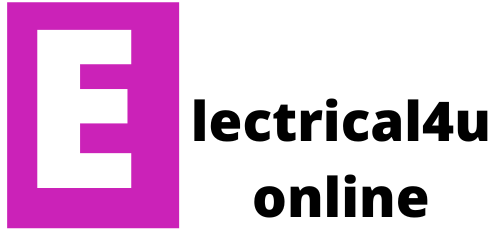Electric motors play a crucial role in various industries and applications, powering everything from household appliances to heavy machinery.
Understanding the electrical connections associated with electric motors is essential for safe and efficient operation.
One question that often arises is whether an electric motor requires a neutral connection. The necessity of a neutral connection in an electric motor depends on the motor’s type and the electrical system it operates in.
Single-phase electric motors require a neutral connection to complete the electrical circuit. On the other hand, three-phase electric motors, often used in industrial settings, do not necessarily need a neutral connection
In this article, we will delve into the world of electric motors, explore the significance of the neutral conductor in electrical systems, and discuss whether an electric motor truly needs a neutral connection in more detail.
Table of Contents
Understanding Electric Motors
Electric motors consist of several components that work together to convert electrical energy into mechanical motion.
These components typically include a rotor, stator, armature, and commutator or slip rings, depending on the motor type.
By harnessing the interaction between magnetic fields, electric motors generate rotational movement, enabling the functionality of numerous devices and machinery.
Role of Neutral in Electrical Systems
To comprehend the necessity of a neutral connection for electric motors, it is important to grasp the concept of the neutral conductor in electrical systems.
The neutral is a current-carrying conductor that completes the electrical circuit in alternating current (AC) systems. It acts as a return path for unbalanced currents and helps maintain voltage stability.
In AC circuits, the neutral conductor is crucial for the proper functioning of electrical devices and the prevention of electrical hazards.
It carries the return current from the load back to the power source, balancing the flow of electricity and ensuring a safe and efficient electrical system.
Does an Electric Motor Need a Neutral?
The requirement for a neutral connection in an electric motor depends on the motor’s type and the electrical system it operates in.
Let’s examine the necessity of a neutral connection in both single-phase and three-phase electric motors.
Neutral in Single-Phase Electric Motors
Single-phase electric motors, commonly found in smaller applications, require a phase-to-neutral connection.
These motors operate using a single alternating current phase and rely on a neutral connection to complete the circuit.
Without a neutral, the motor cannot function correctly. The neutral serves as the return path for the current, allowing the motor to operate smoothly.
Neutral in Three-Phase Electric Motors
Three-phase electric motors, frequently used in industrial settings, operate using three alternating current phases.
Unlike single-phase motors, three-phase motors do not necessarily require a neutral connection.
The absence of a neutral does not impede the motor’s operation as long as the three phases are properly connected.
The balanced nature of three-phase power distribution ensures that the currents in each phase cancel each other out, eliminating the need for a neutral.
Read also my article: Single vs Three-Phase Motor (Explained for Beginners)
Alternatives to Neutral in Electric Motor Circuits
In situations where a neutral connection is not available or feasible, alternative measures can be employed to ensure the safety and proper operation of electric motors.
One such measure is grounding. By establishing a reliable grounding system, any potential fault currents can be directed safely to the ground, protecting both the motor and individuals from electrical hazards.
Other protective devices, such as overcurrent protection devices and motor protection devices, play a vital role in safeguarding electric motors.
These devices can detect abnormal current levels, overheating, or other anomalies, triggering the disconnection of power to prevent damage to the motor and mitigate safety risks.
Safety Considerations
When dealing with electric motors, safety should always be a top priority. Proper wiring, grounding, and adherence to electrical codes and standards are crucial for the safe and efficient operation of electric motors.
Faulty electrical connections, inadequate grounding, or non-compliance with regulations can result in electrical hazards, equipment damage, or even life-threatening situations.
It is essential to consult with qualified professionals and follow established guidelines to ensure the utmost safety.
Conclusion
While the necessity of a neutral connection in an electric motor depends on the motor type and the electrical system it operates in, it is vital to understand the role of the neutral conductor in electrical systems.
Single-phase electric motors require a neutral connection, whereas three-phase motors do not necessarily need one.
However, alternative measures such as grounding and protective devices can be implemented to ensure the safe and efficient operation of electric motors.
By adhering to proper wiring practices, grounding guidelines, and relevant regulations, individuals can maximize the performance and longevity of electric motors while prioritizing safety in various applications and industries.
Install my Free Android App on Google Play:
Electrical Cables Most Common Tables
And, my Electrical Calculations App “”
Discover more great content by subscribing to My channel
Looking to stay ahead of the game in the world of electrical engineering? Subscribe to my YouTube channel and gain access to exclusive content you won’t find anywhere else!
The staff I recommend
(Amazon Affiliate Links to products I believe are high quality):
- Economy 120 Volt/60Hz AC Power Source – Step-Down Voltage & Frequency Converters 1800W
- UNI-T Digital Multimeter Tester UT139C
- 50-Amp Extension Cord for RV “100ft”
- Voltage Stabilizer 110/220v
- Hair Dryer “best selling“
- TOSHIBA EM131A5C-BS Countertop Microwave Ovens
Disclaimer: This contains affiliate links to Amazon products. I may earn a commission for purchases made through these links.

